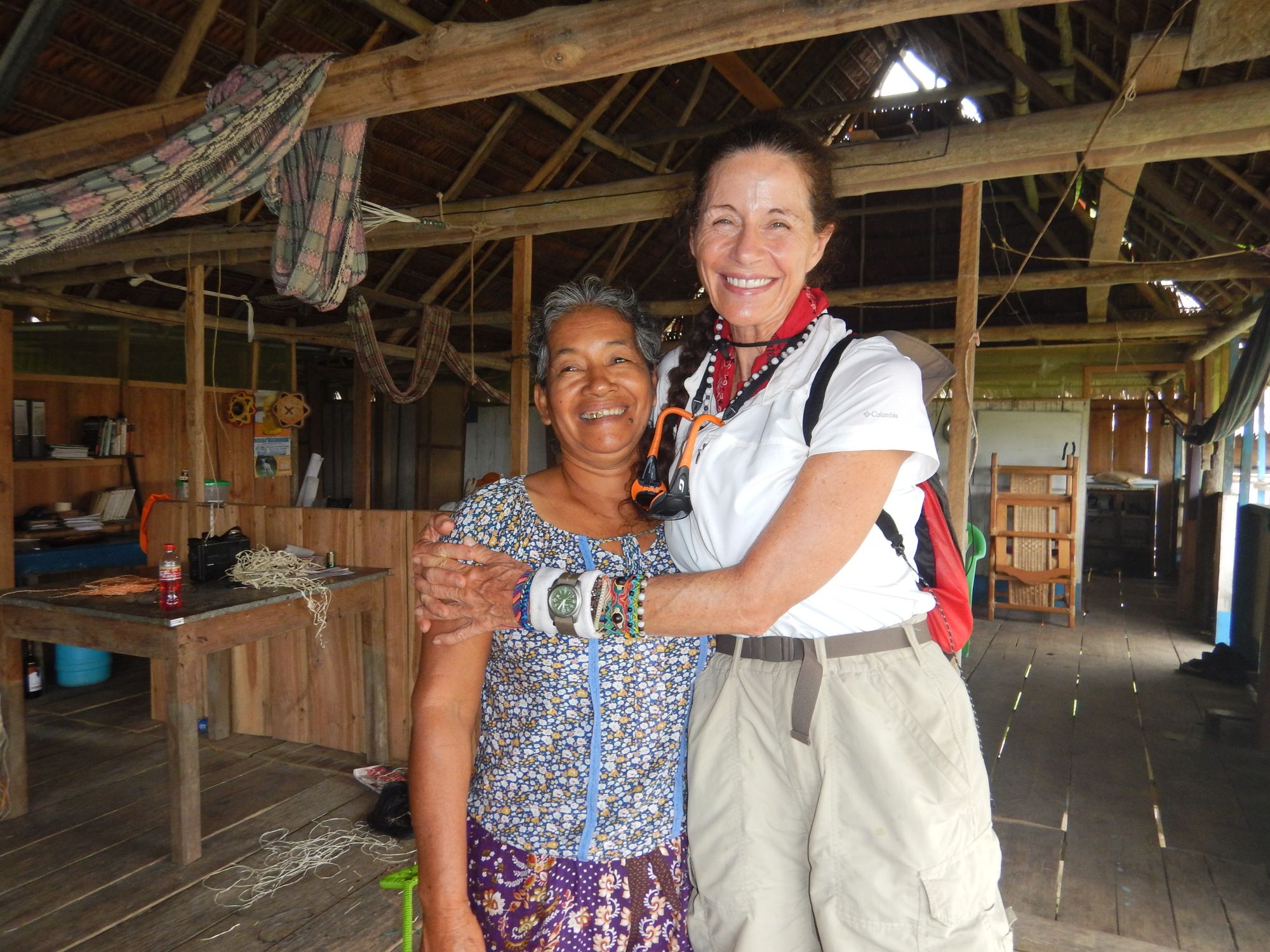
As I face my seventies, what might I need to back off or give up? The jury is out, but I am beginning to see some hints
I woke up this morning and hopped out of bed singing Happy Birthday to myself. I happen to share this anniversary with Betty White, who is currently getting a lot more love than I ever will on this date, and also, Martin Luther King is having marches and parades. James Earl Jones, Muhammad Ali and Benjamin Franklin also share this anniversary along with millions of others, mostly non-luminaries like me.
The only march I get today is whatever walk I take on a pretty beach, to mark the event. I turned 69, which is kinda a big one.
I am also unable to do my traditional 120 birthday pushups. Not because I'm not capable, but twenty was all I could manage, given recent rotator cuff surgery. And the fact that the anchor backed out, it hurts like hell, and I have to have another surgery next week. Patience.
Not my finest characteristic, that.
So last night I read my journal entry for this date in 2013, the year that EVERYTHING changed, and I turned myself into an athlete. A serious one.
After ten years of living up to most if not all of the promises I'd made myself that night in Samara, Costa Rica, I am sporting the kinds of injuries and damage you'd expect. That night, I promised myself, I would begin a decade of great adventure.
Boy did I. And with them come all the effects of pushing my body very hard. I have CMC arthritis, really bad bone-on-bone stuff, in both hands. I need surgery; each one means at least six plus weeks out and then PT.
I need surgery to fuse some bones on the top of my left foot where a massive draft horse stepped on it repeatedly, mistaking his bulk for a Retriever puppy in his eagerness for pets. That's another twelve weeks out of commission.
There's good news and bad news. On one hand, I heal fast. And I have coverage. My local surgeon's a good one and I really trust him with my hands. He works with ex-pro athletes who have no interest in slowing down. Me neither. However, as we aging athletes MUST accept, down time is key. So is respecting the recovery process.
I heal like a twenty-year-old, because of how I eat and move. That does not mean that my body, now almost seventy, with all the wear and tear that a hard-used body will sport, can't heal fast. There is a distinct potential that I will need to redirect a bit, if some of those injuries put a permanent hitch in my giddyup.
My parts and bits are breaking down, slowly but surely, as time does to those of us who like to live hard. Over the last several years I've given up a few sports that I kinda liked, but which were expensive and didn't give me nearly the pleasure that horse riding does, for example.
If you're wise, you bloody well learn to let go.
Part of this process was challenging whether I liked being able to list things like scuba diving on my resume, even though I no longer much cared for it any more. Who am I trying to impress, anyway? Was I trying to deny my age? Was I desperately needed to pad my resume as if that gave me status? HERE, lemme show you this LONG LIST of amazing sports I can do at 69!!!!!
And if the answer to those questions was yes, what on earth did it get me?
A good question to ask is where we are so terribly identified, such as a runner or hiker or kayaker, or pilot or skydiver, like labels we sew on our jackets. Rather, like the relationships we have during our lifetimes, sports may also come and go, as our bodies and preferences changes. This is perfectly natural.
A friend of mine who is a marathoner at 59 has noticed some creakiness that indicates wear and tear as well. This is by no means a statement of defeat. Or de-feet, as it were.
She bought a bike. For her that was the perfect alternative. I've got two that I've not ridden around here yet, even though Eugene is bike central. Okay, well, it's also bike THEFT central, which makes riding to a spot for coffee a lot more expensive than planned.
But here's the real message: we need to be willing to adapt, when the sports we love no longer give our bodies the love they need.
As an athlete, and with a love of movement and of the sports which feed my soul, I am faced with some of the same challenges people far more athletic than I also face.
To that then, this:

Stulberg writes about some pros who are having their moment in the sun turn into endless moments in the shade, and the cost to their egos. That's nothing like those whose terrible injuries in their prime left them in wheelchairs or bedridden. This article is about when the sport we love most is no longer the sport we can continue to do. This article, my article, speaks to the rest of us, or at least for my part, what I hope to be able to do.
Stulberg writes:
...I learned that these transitions are an issue for amateurs, too. No matter where you fall on the talent spectrum, the things you care deeply about and identify with most tend to be the things that break your heart. Because eventually, you must move on, or at least change your relationship to them. The more you put into something, the harder it is to step away or even just experience decline.
I have every intention of continuing to train, for my adventure travel career is still on, barring utter shutdown by Covidiots, which is entirely possible. I might even, in fact, choose to live overseas for the time I am in recovery, taking advantage of ex-pat conditions in lovely places while I do my PT and get better far away from the noise of social media. I could hardly imagine a better R&R.
It is entirely possible I may have to change my relationship with a few sports. I recommitted to climbing Kilimanjaro in 2023, and while I am still focusing on that, a foot surgery may kick my training into low gear for a while. Or even push the date to another year. I can't get so attached to or identified with an outcome that I am a slave to it.
For if that sport abandons me via injury, or age, or any one of a myriad issues, that will leave me bereft. Better that I have plenty of options, and the willingness to let bygones be bygones. For example I am deeply grateful for my skydiving career. I might do a few more tandem jumps but I don't need to do any more relative work. Nor do I have any need to prove myself in the air next to people a fraction my age.

If you're a runner, and your feet give out (it's rarely the knees, which benefit from running at all ages), or a paddler and your shoulders give out, or whatever, the loss of your beloved sport might be cause for great grief. I'm not there yet. However the good news, if we're willing, is to embrace the invitation to find something new. As with all relationships, they morph, just as our relationship with an aging and/or injured body must morph.
Stulberg says:
Though your participation (or talent) for a sport may be impermanent, the experiences that you had and the lessons that you learned are yours forever. Even as your relationship with your sport changes, you can use these hard-won lessons in other areas of your life. Take the attributes that made you love your sport and explore them in different contexts. One chapter may be ending, but another is starting. Write the next chapter how you want to.
Last year I played with aerial silks. As I look around my new town I see all kinds of dance studios (I used to study salsa) and martial arts training facilities. All of them intrigue me. My age doesn't put me off. I am more interested in pushing my boundaries in new directions than I am worried about whether I can still hike a huge mountain.
I'm going to train for Kili as long as my body allows me to. If it doesn't, there are so very many other options which could give me just as much joy. I'd prefer to frame it less as a loss and more as a brand new adventure.
Where are you going to go today?
If there is one lesson I've learned, sometimes the hard way, people leave us. Relationships end, sometimes badly. However, invariably when we give ourselves permission to mourn what's left the building, it can be remarkable what shows up next.
I can't wait.


Comments powered by Talkyard.